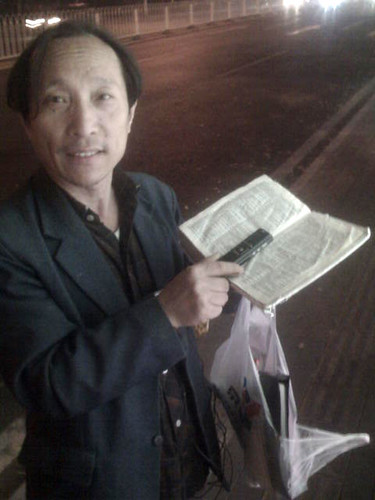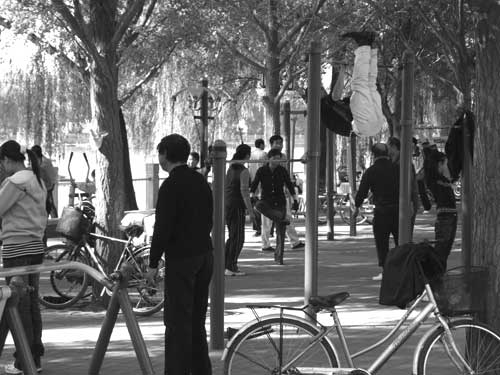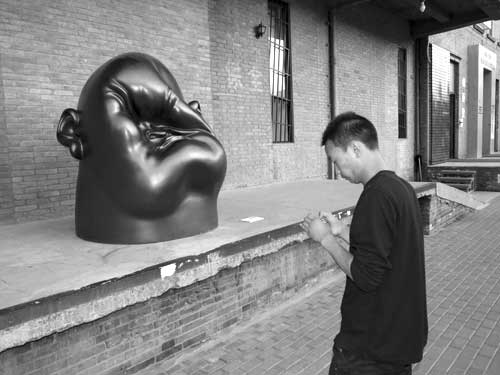Here’s a little titbit from an otherwise deeply uninteresting bus-ride a couple of weeks ago. (My silent spell of late has been due to a nasty bout of tonsilitis I’ve been fighting.)
It isn’t unusual, any native English speaker will testify, for foreigners in China to be approached by strangers keen on improving their spoken English. A popular location for this seems to be public transport (no escape routes, see). I was the recipient (victim?) of this honour (time-hijack?) the other evening on my trip home from Beida. My most recent four-bus-stop student was so delightful I can’t resist writing it up.
Below is a picture of ‘David’, a Beijinger in his 50s whose profession I didn’t catch. My conversation with him on the bus (what is the population of England? does everyone have two cars?) took a twist when he matter-of-factly took out a dictaphone and pressed record. When he arrives home tonight, he explains, he will ‘listen to my British English again and practice’. Fair enough, I think. Hao banfa.
Once we exhaust the topic of how much a Brit earns in a month, David produces the most tattered, battered, dog-eared English dictionary I have ever seen. He consults his notebook to check the page number to open it to, points to the word in the top-left corner and asks me to pronounce it in my ‘British English’, while the red-light of his dictaphone hums. Then the one below it. And below that. OK, next one….
At his request, I spend a merry five minutes working my way through an entire double-columned dictionary page. From ‘pathomorphology’ to ‘pheromone’. This, it transpires, is David’s method for teaching himself English. He has been working through this dictionary for 7 years (already at P!), while cornering unwitting English speakers on his daily commute. In retrospect, it explains his impressive, and for the most part utterly useless, vocabulary.
David, wherever you are and whichever bus line you’re frequenting, I wish you luck. Before we parted company, I asked if I can flick through his notebook. It’s full of bizarrely irrelevant English phrases, including the gem:
It is better for the brain to use chopsticks rather than a knife
My curiosity is piqued, but I wouldn’t mind seeing some hard science behind that claim.

David with his dictionary and dictaphone




